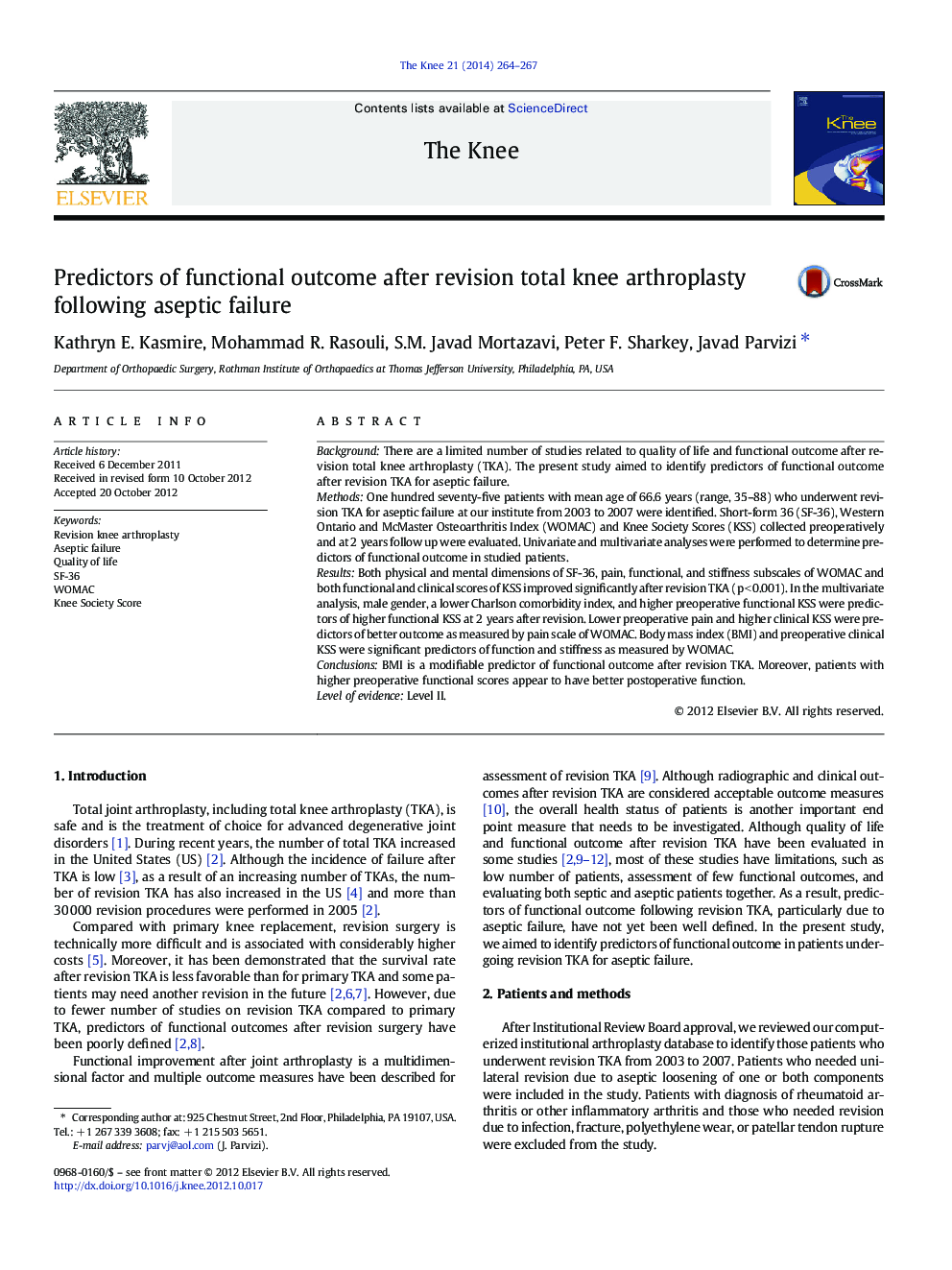| Article ID | Journal | Published Year | Pages | File Type |
|---|---|---|---|---|
| 6211268 | The Knee | 2014 | 4 Pages |
BackgroundThere are a limited number of studies related to quality of life and functional outcome after revision total knee arthroplasty (TKA). The present study aimed to identify predictors of functional outcome after revision TKA for aseptic failure.MethodsOne hundred seventy-five patients with mean age of 66.6 years (range, 35-88) who underwent revision TKA for aseptic failure at our institute from 2003 to 2007 were identified. Short-form 36 (SF-36), Western Ontario and McMaster Osteoarthritis Index (WOMAC) and Knee Society Scores (KSS) collected preoperatively and at 2 years follow up were evaluated. Univariate and multivariate analyses were performed to determine predictors of functional outcome in studied patients.ResultsBoth physical and mental dimensions of SF-36, pain, functional, and stiffness subscales of WOMAC and both functional and clinical scores of KSS improved significantly after revision TKA (p < 0.001). In the multivariate analysis, male gender, a lower Charlson comorbidity index, and higher preoperative functional KSS were predictors of higher functional KSS at 2 years after revision. Lower preoperative pain and higher clinical KSS were predictors of better outcome as measured by pain scale of WOMAC. Body mass index (BMI) and preoperative clinical KSS were significant predictors of function and stiffness as measured by WOMAC.ConclusionsBMI is a modifiable predictor of functional outcome after revision TKA. Moreover, patients with higher preoperative functional scores appear to have better postoperative function.Level of evidenceLevel II.
